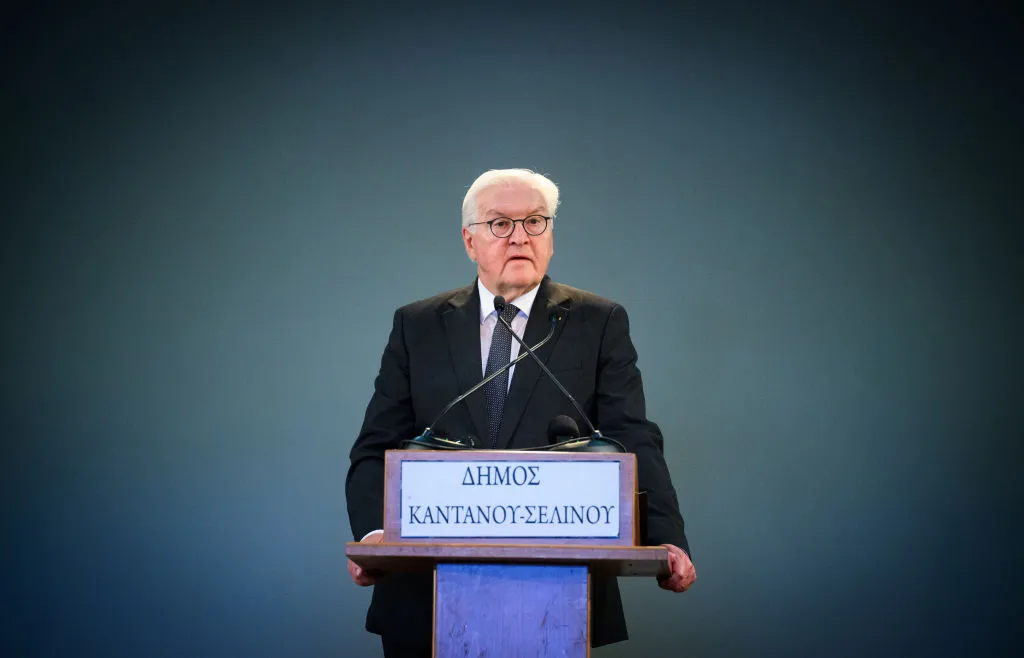
Last week, Germany’s head of state, Frank-Walter Steinmeier, visited the Greek port city of Thessaloniki and declared, “Anyone who stands and speaks here as German president is filled with shame.”
He was standing on ground earmarked for the creation of a long-awaited Holocaust Museum of Greece. It’s finally slated to open in 2026 to commemorate the nearly 50,000 Greek Jews who were loaded onto cattle trucks in Thessaloniki and transported to Auschwitz during the Nazi occupation of Greece. Ninety-six percent of them were murdered in the concentration camp.
Germany has donated more than $10 million to the project. It will be eight stories tall and extend along Thessaloniki’s seashore, connecting the city’s harbor, the historic White Tower, and the old railway station, where many of the Jews were deported from.
On top of Germany’s donation, the Stavros Niarchos Foundation (SNF)—established in 1996 to honor Greek shipping magnate Stavros Niarchos—the Municipality of Thessaloniki, and the city’s mayor, Yiannis Boutaris, are funding the Holocaust Museum of Greece. Construction is estimated at almost $30 million and the foundation stone was laid in 2018.
“The Holocaust Museum of Greece will highlight and pay tribute to the memory not only of the Jewish Community of Thessaloniki, but that of the 39 Jewish communities that existed in the country before the war,” the SNF said in a statement. “At the same time, it will illuminate the multidimensional culture of the Jews of Thessaloniki and their multifaceted contribution to the development of the city, as well as Thessaloniki itself as a multicultural metropolis that continues to evolve with perseverance and persistence.”
David Saltiel, who heads Thessaloniki’s diminished Jewish community, told the Guardian, “Finally it’s happening—we’ve waited for this for so many years.”
“I feel I am the voice of all those Jews who were put on trains, with no one stopping them and everyone looking,” he added. “As the generation after the Holocaust, we have a responsibility to speak on behalf of those who could not say anything.”
Around 90 percent of Thessaloniki’s Jewish population was killed by the Third Reich’s henchmen, which accounted for roughly a third of the city’s total population. The city was called Salonika before World War II and known as the “Mother of Israel” due to its huge Jewish community, which far outnumbered the Christian population long after it was incorporated into the Kingdom of Greece in 1912.
“The museum is intended to be a world-class destination, where education will play a key role,” the SNF said. “After construction is completed in the coming years, the Holocaust Museum of Greece will host permanent and temporary exhibitions and archives that will highlight the value of preserving and strengthening the remembrance of the Holocaust, acceptance and respect for diversity and human rights, and freedom.”
A consortium of three architectural firms – one German, one Israeli, and one Greek – is designing the octagonal building.

